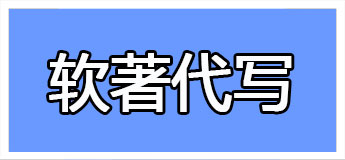
1. The Complete Guide to Copyright Laws in the Digital Age
Copyright laws have been around for centuries, but with the rise of technology and the internet, they have become more complex than ever before. As digital media has become increasingly prevalent, it has become easier to reproduce and distribute content that is protected by copyright. With this in mind, it is essential for both creators and consumers of digital content to have a comprehensive understanding of copyright laws.
Copyright laws are designed to protect the rights of creators of original works, such as books, music, and movies. Under copyright law, these creators have exclusive rights to sell, distribute, and reproduce their works. In order to do so, they must obtain a copyright registration from the government. Copyright protects the expression of an idea, but not the idea itself. For example, the plot of a novel cannot be copyrighted, but the words used to describe it can.
In recent years, copyright laws have come under scrutiny due to the increased ease of distribution of digital media. With the internet, it is easy to share digital content with a global audience without the copyright holder's permission. This has given rise to a new wave of copyright laws and copyright enforcement efforts by the government and private industries.
One key aspect of copyright law is fair use. Fair use allows for the limited use of copyrighted material without the copyright holder's permission. This can include using a portion of a copyrighted work for criticism, review, or research. However, fair use is not an absolute right, and there are no hard and fast rules about when it is permissible to use copyrighted material without permission. It is up to the courts to determine whether a particular use is fair, based on factors such as the purpose and character of the use, the nature of the copyrighted work, and the economic impact of the use on the copyright holder.
Another key aspect of copyright law is the Digital Millennium Copyright Act (DMCA), which was passed in 1998 to address copyright issues in the digital age. The DMCA criminalizes the production and distribution of technology that can bypass copyright protection measures, such as encryption. It also provides a \"safe harbor\" provision for internet service providers, shielding them from liability for copyright infringement by their users if they comply with certain requirements, such as promptly removing infringing content upon notification.
In addition to fair use and the DMCA, there are several other important aspects of copyright law to keep in mind. For example, copyright law protects creators even after they die, meaning that their heirs or estate can continue to enforce copyright protections. It is also important to note that copyright law varies from country to country, so creators and consumers of digital content should be familiar with the laws in their jurisdiction.
Copyright law can be complex and confusing, but it is essential for both creators and consumers of digital content to understand their rights and responsibilities. By staying up to date on the latest developments in copyright law and seeking legal advice when necessary, individuals can ensure that they are compliant with the law and that their content is protected.
上一篇:标题软件著作权年费交纳详解下一篇:从登记证书和著作权证书看软件保护
软件著作权说明书代写
一、《申请表》《说明书》《源代码》3个文档
二、300元/案子,3天内交付
三、电话/微信:139-9853-9835




